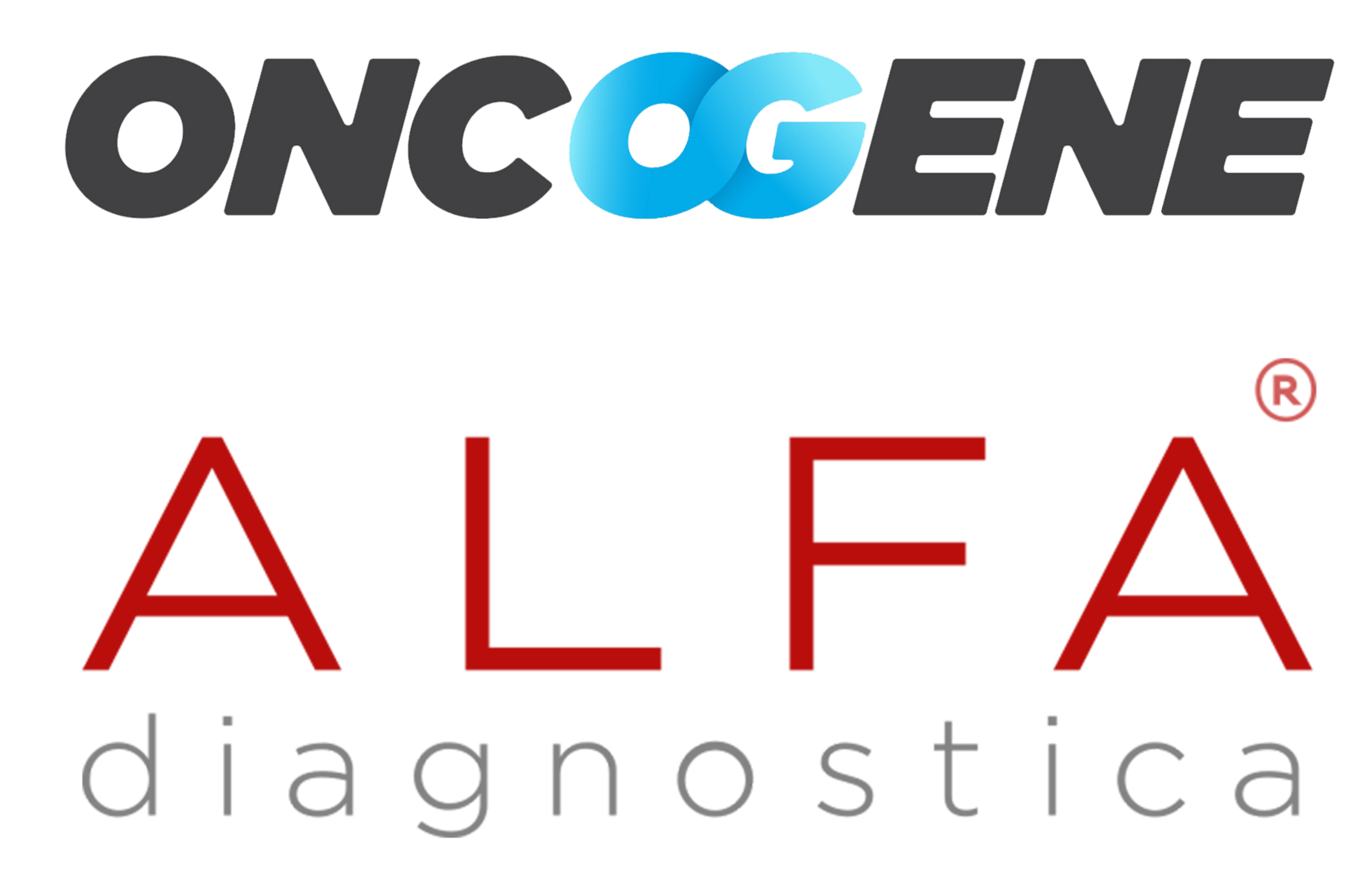



A revolutionary blood test for the early detection of over 70 types of cancer in asymptomatic people
A revolutionary blood test for the early detection of over 70 types of cancer in asymptomatic people

Cancer – a major challenge in every patient’s life. Unfortunately, a significant number of patients cannot be treated successfully, largely due to late diagnosis.
It has been demonstrated that an effective strategy for combating cancer is detecting it before symptoms appear, or through early screening, which is currently possible only for prostate, breast, cervical, lung, and colon cancers. However, it is well known that, for various reasons, people are not always willing to undergo screening tests for each type of cancer (such as lack of time, lack of desire, prejudices, fears, etc.).
Unfortunately, for most types of cancer, including aggressive ones, screening tests have not yet been developed, and the disease is often detected only at late stages, making it extremely difficult, and often impossible, to overcome. For example, according to the American Cancer Society, these types of cancer accounted for nearly three-quarters of cancer deaths in the U.S. in 2021.
That is why the new paradigm of oncological screening is minimally invasive multi-cancer screening using a simple blood test or liquid biopsy (a general term for all tests that examine biomarkers in biological fluids to identify a range of diseases).
It has been demonstrated that an effective strategy for combating cancer is detecting it before symptoms appear, or through early screening, which is currently possible only for prostate, breast, cervical, lung, and colon cancers. However, it is well known that, for various reasons, people are not always willing to undergo screening tests for each type of cancer (such as lack of time, lack of desire, prejudices, fears, etc.).
Unfortunately, for most types of cancer, including aggressive ones, screening tests have not yet been developed, and the disease is often detected only at late stages, making it extremely difficult, and often impossible, to overcome. For example, according to the American Cancer Society, these types of cancer accounted for nearly three-quarters of cancer deaths in the U.S. in 2021.
That is why the new paradigm of oncological screening is minimally invasive multi-cancer screening using a simple blood test or liquid biopsy (a general term for all tests that examine biomarkers in biological fluids to identify a range of diseases).
TrucheckТМ is a non-invasive screening test designed for the early detection and identification of over 70 types of solid tumors in asymptomatic individuals aged 40-70 years
Based on a safe blood test
Based on a safe blood test
Trucheck™ examines a patient’s blood sample for the presence of "circulating tumor cells" (CTCs), which are released into blood by malignant solid tumors at any stage of the disease. CTCs are a unique biomarkers of malignancy and have a very high accuracy of cancer detection, as they are not found in healthy people or in patients with benign tumors.
Detection of CTC in a patient's blood sample indicates a high probability of a latent cancer in a specific organ or tissue, and the patient may be recommended additional diagnostic procedures (invasive biopsy, etc.). Conversely, the absence of CTCs in a patient's blood sample suggests a low probability of latent cancer.
Detection of CTC in a patient's blood sample indicates a high probability of a latent cancer in a specific organ or tissue, and the patient may be recommended additional diagnostic procedures (invasive biopsy, etc.). Conversely, the absence of CTCs in a patient's blood sample suggests a low probability of latent cancer.
- For professional use only
- Developed, validated and certified by Datar Cancer Genetics

High Accuracy of Trucheck™
The unique combination of sensitivity and specificity of Trucheck™ for early detection of cancer in asymptomatic individuals has been confirmed in large international studies, involving over 57,000 healthy individuals and cancer patients.
-
Trucheck™ correctly detects
~ 88 out of 100 people with any type of cancer and at any stageTest Limitations: ~ 12 out of 100 people with cancer will receive a false-negative result -
Trucheck™ correctly detects
~ 96-99 out of 100 asymptomatic people without cancerTest Limitations: ~ 1-4 out of 100 people without cancer will get a false positive result

-
Trucheck™ correctly detects ~ 88 out of 100 people with any type of cancer and at any stage
Test Limitations: ~ 12 out of 100 people with cancer will receive a false-negative result -
Trucheck™ correctly detects ~ 99 out of 100 asymptomatic people without cancer
Test Limitations: ~ 1-4 out of 100 people without cancer will get a false positive result


Undeniable advantages of Trucheck™
- Multi-cancer screening
- Accurate information about the origin of the tumor
- Without Radiation or Invasive Procedures
- Safe Blood Collection
- Compatible with Imaging
Advanced Technology
Malignant tumors, at all stages, release cells and non-cellular components (exosomes, proteins, and nucleic acids) into the bloodstream, which can be analyzed using appropriate technologies. This principle forms the basis of the non-invasive "liquid biopsy" technology, which involves assessing biological samples obtained non-invasively, such as through blood draws.
Circulating tumor cells (CTCs) are intact, nucleated malignant cells that have entered the bloodstream from a cancerous tumor. While some CTCs are destroyed by various mechanisms (such as immune clearance or apoptosis), others survive, spread to different organs, and lead to the formation of secondary tumors (metastasize). CTCs may exist individually or in clusters, known as circulating tumor-associated cells. These clusters have greater survivability because they are better protected from immune surveillance and are able to avoid anoikis (cell death due to loss of cell-to-cell contact).
Circulating tumor cells (CTCs) are intact, nucleated malignant cells that have entered the bloodstream from a cancerous tumor. While some CTCs are destroyed by various mechanisms (such as immune clearance or apoptosis), others survive, spread to different organs, and lead to the formation of secondary tumors (metastasize). CTCs may exist individually or in clusters, known as circulating tumor-associated cells. These clusters have greater survivability because they are better protected from immune surveillance and are able to avoid anoikis (cell death due to loss of cell-to-cell contact).

CTCs are highly specific for the presence of cancer (compared to DNA/RNA) and are not found in the blood samples of healthy individuals or those with benign tumors.
By using primary negative enrichment with an epigenetically active stabilizing medium, Trucheck™ ensures the survival of malignant cells (resistant to apoptosis), while allowing non-malignant cells to undergo apoptosis (programmed cell death). The detection of CTCs is achieved through direct visualization rather than indirect assessments, effectively representing a "liquid biopsy" of the tumor. Subsequent analysis using multiplex fluorescent immunocytochemistry of tissue-specific markers on these cells helps determine cancer types and their likely organ of origin.
By using primary negative enrichment with an epigenetically active stabilizing medium, Trucheck™ ensures the survival of malignant cells (resistant to apoptosis), while allowing non-malignant cells to undergo apoptosis (programmed cell death). The detection of CTCs is achieved through direct visualization rather than indirect assessments, effectively representing a "liquid biopsy" of the tumor. Subsequent analysis using multiplex fluorescent immunocytochemistry of tissue-specific markers on these cells helps determine cancer types and their likely organ of origin.
Opportunities
- High sensitivityReliable detection of CTCs in localized (including in situ), locally advanced, and metastatic cancer, regardless of age, cancer stage, or molecular subtypes
- High SpecificityExtremely low risk of false-positive results
- Precise tissue and organ origin informationImportant reference point for further diagnostics
- Strict quality controlEach positive result is verified by a licensed pathologist
Include Trucheck™ in your annual medical check-ups.
This will significantly increase your chances of detecting one or more types of cancer at early stages when it is most controlable. You'll gain an undeniable advantage-beating cancer at its most treatable stage. Be proactive, stay one step ahead!
Include Trucheck™ in your annual medical check-ups.
This will significantly increase your chances of detecting one or more types of cancer at early stages when it is most controlable. You'll gain an undeniable advantage-beating cancer at its most treatable stage. Be proactive, stay one step ahead!
Include Trucheck™ in your annual medical check-ups.
This will significantly increase your chances of detecting one or more types of cancer at early stages when it is most controlable. You'll gain an undeniable advantage-beating cancer at its most treatable stage. Be proactive, stay one step ahead!
Trucheck™
- For people aged 40-70 who have never been diagnosed with cancer before
- For people who want to include this test in their annual check-up
- For people who currently have no clinical or radiological suspicion of cancer
- For asymptomatic people with increased risk of developing cancer
- For asymptomatic people with a family history of cancer
Trucheck™ may be performed on people aged 35-40 years, if the following risk factors are present:
- Type 2 diabetes (due to higher incidence of pancreatic, liver, colon, breast, bladder cancer)
- Obesity
- Infectious diseases (HPV, hepatitis B or hepatitis C viruses)
- Documented / significant exposure to specific chemicals or carcinogens
- Presence of risk associated hereditary germline mutation/s
- For patients with any current or past oncological disease (solid tumors and/or hematolymphoid tissue)
- For patients with any clinical or radiological suspicion of cancer: in these situations, it is recommended to use the Trublood
- For patients with benign conditions to rule out cancer: in these situations, it is recommended to use the Trublood
- For patients with organ or bone marrow transplants
- For pregnant women
- For patients with immunodeficiency conditions, receiving immunomodulators/stimulants, or immunosuppressants
- Complements but does not replace standard screening procedures
- Should not be used as the only screening method

Solutions
For men and women 40+
Screening for 70+ types of cancer
24 000 MDL I 17 working days
Screening for 70+ types of cancer
24 000 MDL I 17 working days
For women 40+
Screening for 4 types of cancer
18 000 MDL I 17 working days
Screening for 4 types of cancer
18 000 MDL I 17 working days
For men and women 40+
Screening for 70+ types of cancer
24 000 MDL I 17 working days
Screening for 70+ types of cancer
24 000 MDL I 17 working days
For women 40+
Screening for 4 types of cancer
18 000 MDL I 17 working days
Screening for 4 types of cancer
18 000 MDL I 17 working days
Screening for 70+ types of solid cancers
Adenocarcinoma: Bile Duct, Breast, Colon, Duodenum, Esophagogastric Junction, Esophagus, Gallbladder, Ileum, Jejunum, Liver, Lung, Pancreas, Rectum, Stomach, Thyroid, Salivary Duct
Adenosquamous Carcinoma: Esophagus, Gallbladder, Lung;
Central Nervous System Malignancies: Astrocytoma, Ependymoma, Glioblastoma, Glioma, Neuroblastoma, Oligodendroglioma;
Gastrointestinal Stromal Tumors (GISTs): Stomach, Duodenum, Jejunum, Colon, Ileum, Rectum;
Melanomas: Cutaneous, Mucosal;
Mesothelioma: Pleural, Peritoneal;
Neuroendocrine Tumors: Adrenal Gland, Colon, Duodenum, Esophagus, Ileum, Jejunum, Lung, Pancreas, Rectum, Thymus;
Renal Cell Carcinoma: Kidney;
Sarcomas: Carcinosarcoma, Chondrosarcoma, Leiomyosarcoma, Liposarcoma;
Small Cell Lung Cancer: Lung;
Squamous Cell Carcinoma: Anorectum, Buccal Mucosa, Esophagus, Hard Palate, Larynx, Lip, Lung, Oral Cavity, Paranasal Sinuses, Pharynx, Pyriform Sinus, Retromolar Trigone, Skin, Soft Palate, Tongue, Tonsils;
Transitional Cell Carcinoma: Bladder, Renal Pelvis, Ureter
Gender-Specific Cancers
Women: Adenocarcinoma (Ovary, Uterus); Squamous Cell Carcinoma (Cervix, Vulva, Vagina)
Men: Adenocarcinoma (Prostate); Squamous Cell Carcinoma (Penis)
Adenosquamous Carcinoma: Esophagus, Gallbladder, Lung;
Central Nervous System Malignancies: Astrocytoma, Ependymoma, Glioblastoma, Glioma, Neuroblastoma, Oligodendroglioma;
Gastrointestinal Stromal Tumors (GISTs): Stomach, Duodenum, Jejunum, Colon, Ileum, Rectum;
Melanomas: Cutaneous, Mucosal;
Mesothelioma: Pleural, Peritoneal;
Neuroendocrine Tumors: Adrenal Gland, Colon, Duodenum, Esophagus, Ileum, Jejunum, Lung, Pancreas, Rectum, Thymus;
Renal Cell Carcinoma: Kidney;
Sarcomas: Carcinosarcoma, Chondrosarcoma, Leiomyosarcoma, Liposarcoma;
Small Cell Lung Cancer: Lung;
Squamous Cell Carcinoma: Anorectum, Buccal Mucosa, Esophagus, Hard Palate, Larynx, Lip, Lung, Oral Cavity, Paranasal Sinuses, Pharynx, Pyriform Sinus, Retromolar Trigone, Skin, Soft Palate, Tongue, Tonsils;
Transitional Cell Carcinoma: Bladder, Renal Pelvis, Ureter
Gender-Specific Cancers
Women: Adenocarcinoma (Ovary, Uterus); Squamous Cell Carcinoma (Cervix, Vulva, Vagina)
Men: Adenocarcinoma (Prostate); Squamous Cell Carcinoma (Penis)
Screening for 4 types of solid cancers
Adenocarcinoma: Breast, Ovary, Uterus
Squamous Cell Carcinoma: Cervix
Squamous Cell Carcinoma: Cervix
Decided to take the Trucheck™ test!

Book your first consultation with a doctor
The doctor will inform you about the upcoming testing, answer any questions you may have, and then ask you to sign an informed consent form for the test. Then, the doctor will complete a special form (application) according to the requirements of Trucheckтм
The doctor will inform you about the upcoming testing, answer any questions you may have, and then ask you to sign an informed consent form for the test. Then, the doctor will complete a special form (application) according to the requirements of Trucheckтм

Prepare for the test
Collect Your Blood Sample:
- 10 days before blood draw: Avoid blood transfusions
- 24 hours before blood draw: Avoid CT/PET scans and surgical procedures
- 6 hours before blood draw: Do not eat (water is allowed)
Collect Your Blood Sample:
- No appointment needed at any ALFA Diagnostica (see locations below)

Book your second consultation with the doctor
The doctor will interpret your test results, answer any questions you have, and provide recommendations for your next steps
The doctor will interpret your test results, answer any questions you have, and provide recommendations for your next steps

Venous blood (30 ml) collected in 3 vacuum tubes with preservative, according to the Datar Cancer Genetics protocol

Transported by accredited carrier DHL in a specialized container at a temperature of +2°C to +6°C to the Datar Cancer Genetics laboratory in UK

Where can I get tested?
Chisinau
21 N. Теstemițanu, street
Monday – Tuesday, 07:30 - 14:30 I Wednesday, 07:30 - 09:00
Monday – Tuesday, 07:30 - 14:30 I Wednesday, 07:30 - 09:00

Lаboratory Report
The test results provided in the laboratory report are intended for professional use only by qualified specialists, considering the capabilities/limitations/characteristics of the test, the patient's current health status, clinical history, and diagnostic data, and, if necessary, should be confirmed/excluded by standard medical procedures.
RESULT INTERPRETATION
In the patient's blood sample, circulating tumor cells (CTCs) were not detected, indicating a low risk of cancer
A negative result does not exclude presence of cancer, as the mechanism by which tumors release CTCs into the bloodstream is not fully understood, and CTCs may not always be present in the blood. For instance, some carcinomas may not release tumor cells into the bloodstream. CTCs are whole cells, and their distribution in circulating blood differs from other ("soluble") tumor analytes, such as proteins and nucleic acids. CTCs exhibit diverse morphological characteristics, not all of which may be detectable.
A negative result does not exclude presence of cancer, as the mechanism by which tumors release CTCs into the bloodstream is not fully understood, and CTCs may not always be present in the blood. For instance, some carcinomas may not release tumor cells into the bloodstream. CTCs are whole cells, and their distribution in circulating blood differs from other ("soluble") tumor analytes, such as proteins and nucleic acids. CTCs exhibit diverse morphological characteristics, not all of which may be detectable.
In the patient's blood sample, circulating tumor cells were detected, indicating a high risk of cancer (specifying the probable organ of origin and cancer type)
A positive test result does not confirm the diagnosis of cancer. CTCs may be detected in individuals without cancer due to the interaction of carcinogenesis and anti-cancer immune mechanisms. Detection of CTCs can also precede clinical or radiological manifestation by several months or even years.
A positive test result does not confirm the diagnosis of cancer. CTCs may be detected in individuals without cancer due to the interaction of carcinogenesis and anti-cancer immune mechanisms. Detection of CTCs can also precede clinical or radiological manifestation by several months or even years.
- It is strongly recommended to consult an oncologist for further advice and undergo appropriate investigations
Circulating tumor cells (CTCs) were detected in the patient's blood sample; however, the type of carcinoma or organ of origin could not be determined
- It is strongly recommended to consult an oncologist for further advice and to undergo appropriate investigations
View sample reports in English
We're Here to Help
Thank you for your interest in our test. We request you to confirm your email address before we proceed. Kindly fill-up the form and send, to receive the brochure by email.
Book a medical consultation with an expert
Professional and attentive care for each patient
Rusnac Angela
Oncologist
Professional experience 32 years, the highest category
Professional experience 32 years, the highest category
Questions and Answers
Trucheck™ is designed for adults (40+), healthy men and women without any symptoms, who have an increased risk of developing cancer due to family history or age.
Because statistically, the risk of developing cancer increases significantly after the age of 40
Trucheck™ is a simple blood test that can help detect cancer. Early detection of cancer is associated with higher rates of successful treatment and survival
Truecheck does not replace traditional cancer screening. Multi-cancer screening tests are not intended to replace traditional cancer screenings such as mammograms, colonoscopy, or Pap tests. Instead, they can complement existing screening methods
A positive result indicates a high probability of cancer at this point in time
Yes, a consultation is required to discuss the test and make a special request for the test
Yes, you should consult a doctor to interpret the results, whether positive or negative
Yes, with 99% accuracy, but only for the types of cancer covered by the test.
650 MDL
No, Trucheck™ is intended for healthy, asymptomatic individuals. In such cases, you should immediately consult a doctor.
Trucheck™ Intelli detects more than 70 types of solid malignant tumors.
Trucheck™ FemmeSafe detects cancers of the breast, uterus, cervix, and ovaries only.
No, Trucheck™ is not recommended for pregnant women.
No, Trucheck™ only detects solid tumors, as circulating tumor cells originate from these types of cancer.
You can take the test at any ALFA Diagnostica Testing Center.
The test should be taken once every 12 months as part of an annual check-up, provided previous results were negative.
The diagnostic characteristics are described in the corresponding section Trucheck™ may have false-positive and false-negative results due to biological and analytical variations.
No, additional diagnostic procedures, such as imaging studies or an invasive biopsy, are required.
In such cases, an MRI or PET scan is recommended
Waiting for results can cause anxiety or stress. Therefore, the decision to undergo testing should be made calmly and thoughtfully, considering potential emotional impacts
Trucheck™ is conducted in an accredited and certified laboratory at Datar Cancer Genetics in Guildford, UK.

Scientific publications
Author: Akolkar D
Datar Cancer Genetics
Published Date: Nov 30, 2019
Datar Cancer Genetics
Published Date: Nov 30, 2019
Author: Ranade A
Datar Cancer Genetics
Published Date: Sept 21, 2020
Datar Cancer Genetics
Published Date: Sept 21, 2020
Author: Gaya A
Datar Cancer Genetics
Published Date: Sept 30, 2020
Datar Cancer Genetics
Published Date: Sept 30, 2020
Do you have questions?
Call or send us a question

© 2024 Oncogene & ALFA Diagnostica. All rights reserved.
Designed by Targetolog.md.
Designed by Targetolog.md.




